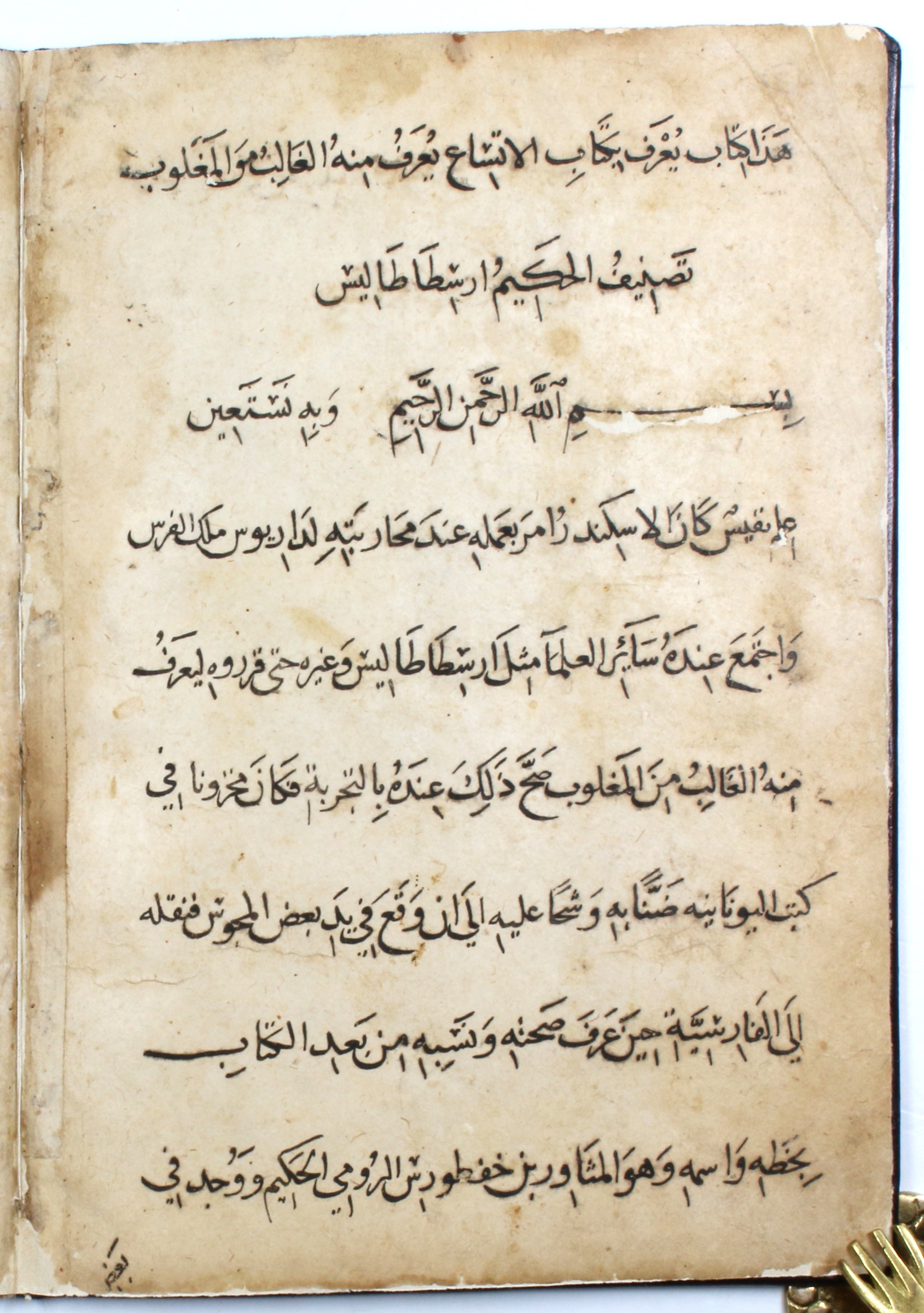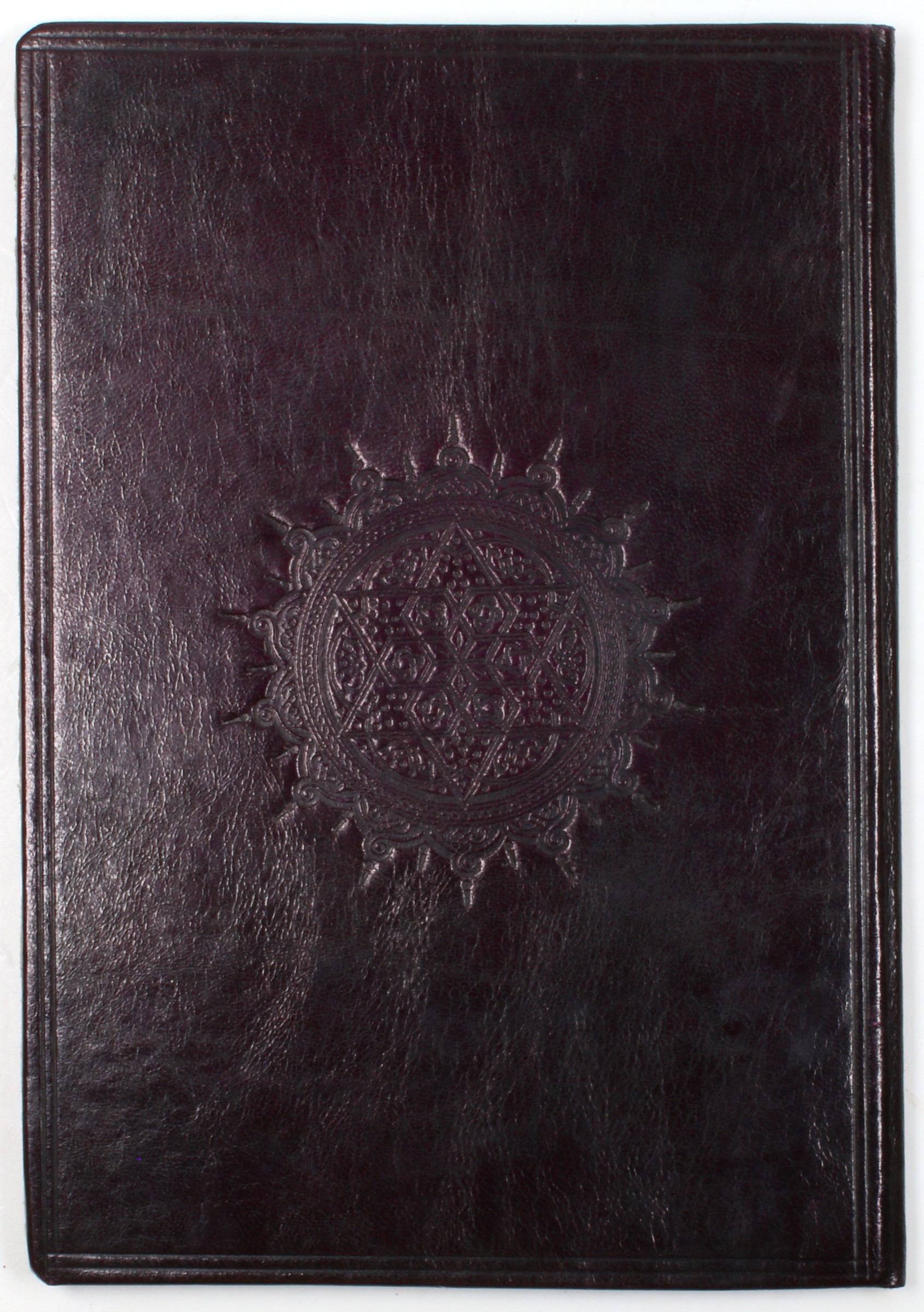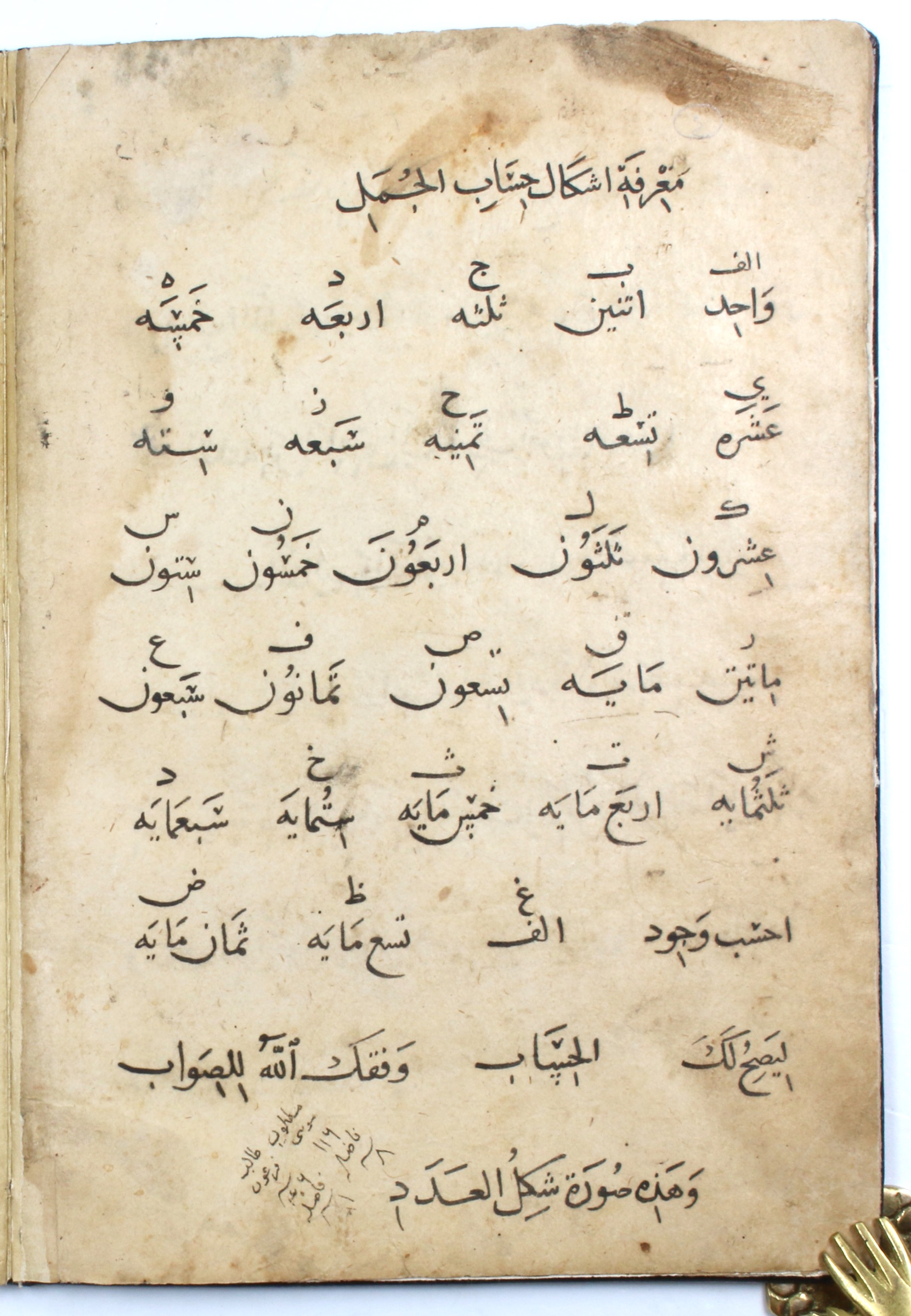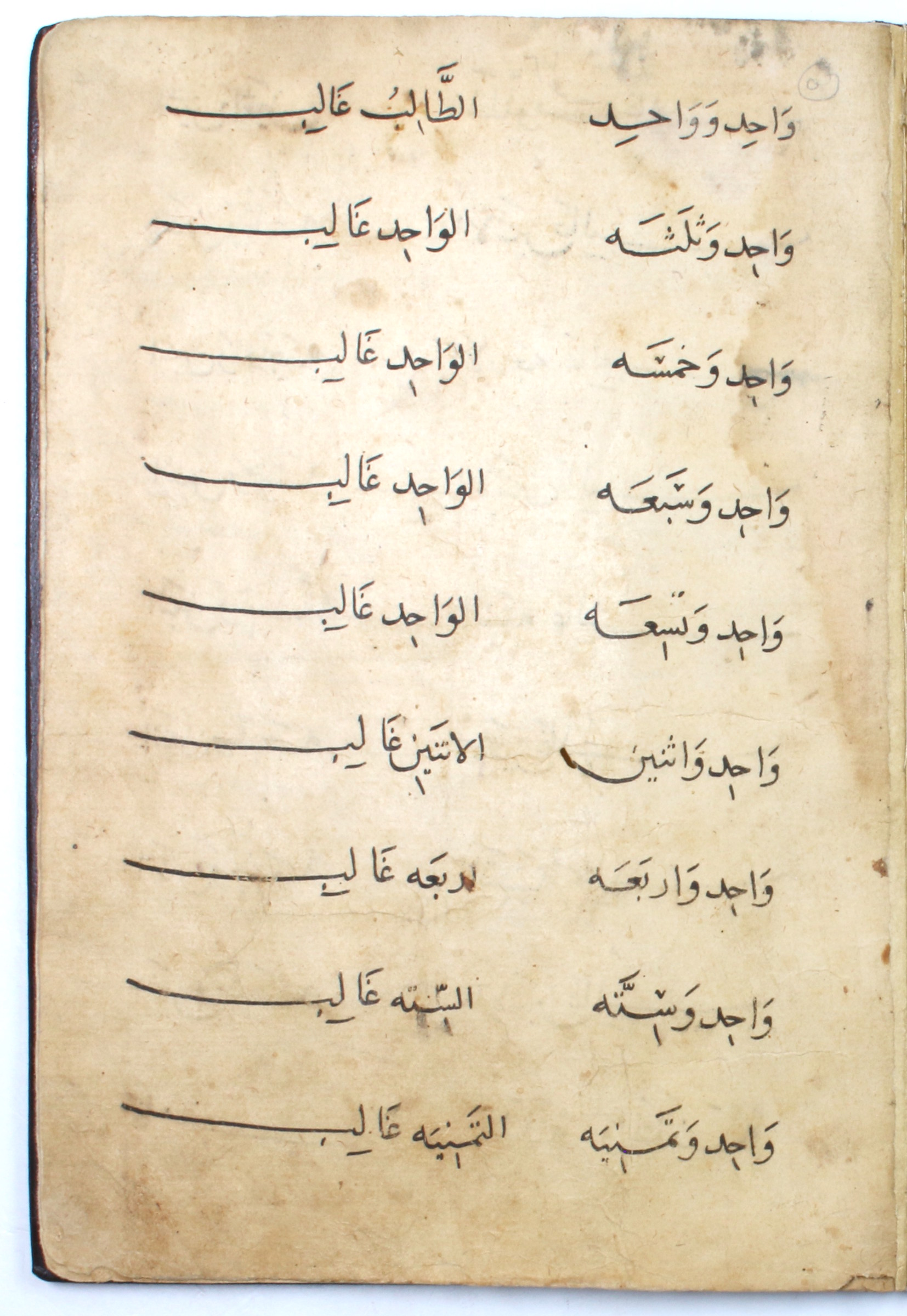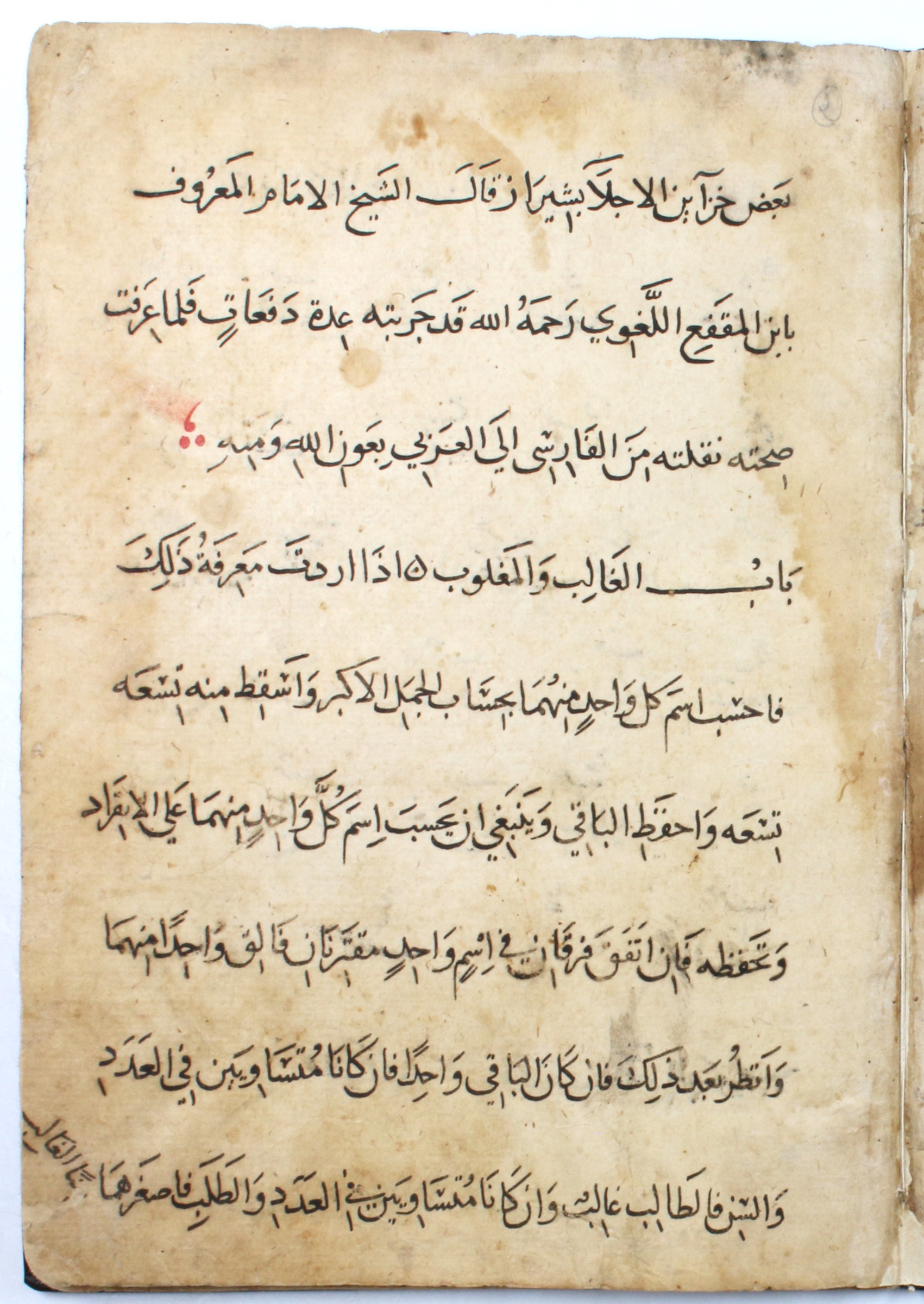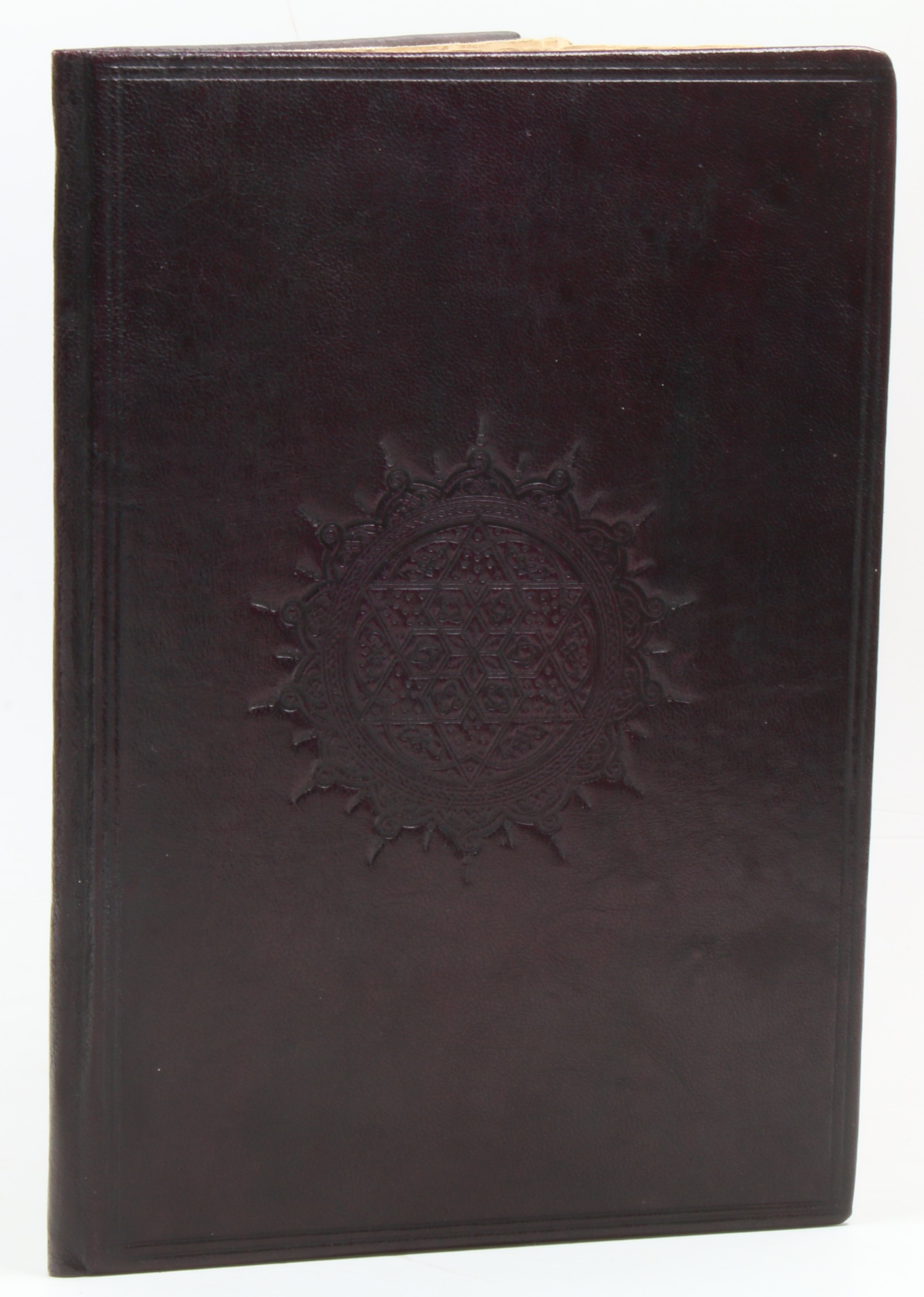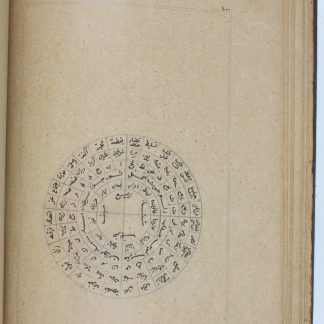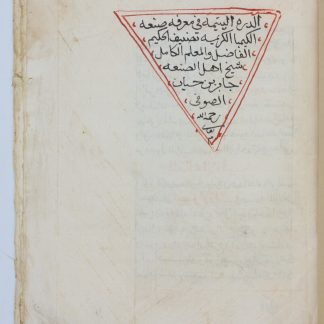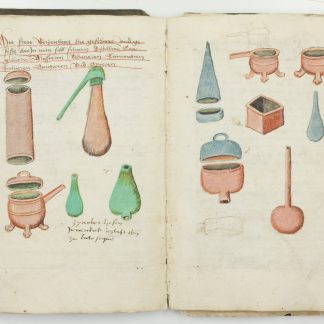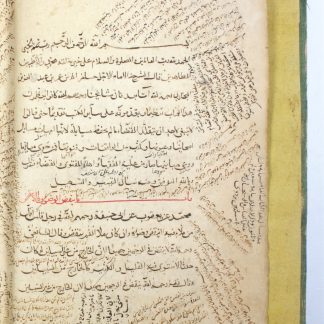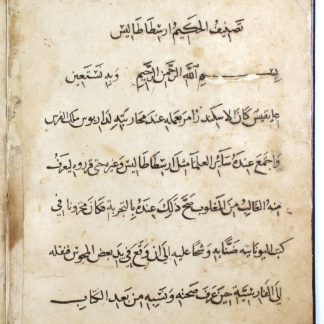Per legend, Aristotle's divination guide for a young Alexander
Kitab al-Ghalib wal-Maghlub [The Victor and the Vanquished].
8vo (166 x 240 mm). 5 ff. Arabic manuscript on paper. Modern full red morocco, ruled in blind and stamped with central medallion.
€ 12,500.00
A book of omens for victory and defeat, legendarily attributed to Aristotle as one of his many letters and lessons to Alexander the Great, and translated into Arabic by Ibn al-Muqaffa (ca. 721-757), the famous Golden Age translator of the Fables of Bidpai. This particular manuscript comes with a short introduction, uncommon with this work, which explains that Alexander requested this treatise from Aristotle while he was at war with Darius III, during Alexander's expansion into Persia in the 330s BCE. According to legend, Alexander's exalted teacher replied with this text. In order to predict military futures, a practitioner would use the manuscript to divine omens for victory or defeat by using the letters in the names of each party. In the margins, a reader has calculated the luck of two names: that of Moses and Pharaoh. As the outcome of this particular matchup was known, this was perhaps intended as a test of divinatory effectiveness.
Per the introduction, this work is said to have survived in Greek copies until it could be discovered and translated into Persian by Mithawar ibn Khfatorus al-Rumi. A copy of this Persian translation was located in Shiraz by Ibn al-Muqaffa, and, satisfied that it was indeed sourced from Aristotle himself, Ibn al-Muqaffa translated the Persian into the Arabic version seen here.
Minor paper repairs and soiling, small dampstain; text not affected, and remains quite legible and well-preserved.

